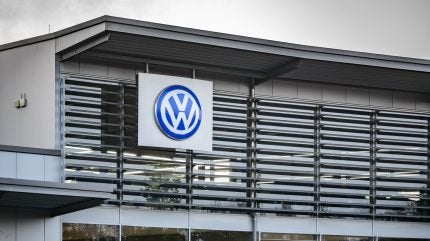
Volkswagen has been dealt a legal setback by Germany’s civil court, which ruled against the automaker in an appeal concerning the diesel-emissions scandal.
According to a Bloomberg report, the Federal Court of Justice in Karlsruhe overturned the shareholders’ endorsement of a 2021 settlement with former CEO Martin Winterkorn and ex-board member Rupert Stadler, citing insufficient disclosure to shareholders.

Discover B2B Marketing That Performs
Combine business intelligence and editorial excellence to reach engaged professionals across 36 leading media platforms.
The court found that Volkswagen did not provide shareholders the opportunity to inquire about the assets of Winterkorn and Stadler before approving the settlement.
Under the agreement, Winterkorn was to pay €11.2m($13.1m), while Stadler agreed to a €4.1m payment.
Furthermore, the judges invalidated the portion of the deal that allowed directors’ and officers’ liability insurance to cover €270m of the settlement costs, added Bloomberg.
Volkswagen, in an emailed statement, acknowledged the ruling and indicated ongoing discussions about the judgment’s implications.
The automaker expressed its intention to achieve the same settlement outcome as before, despite the court’s decision.
Last week, Volkswagen announced plans to appeal a ruling by the Higher Administrative Court in Schleswig-Holstein.
The court ruled against the automaker and the Federal Office of Motor Vehicles (KBA), finding that the KBA had wrongfully approved the Golf Plus TDI model in 2016, which contained two illegal “defeat devices” affecting emissions controls.
Volkswagen, in a statement to AFP as reported by The Economic Times, clarified that the decision was “not final” and that it would “take legal action at the Federal Administrative Court”.
The automaker emphasised that the ruling does not currently necessitate any immediate actions such as vehicle registration removal or technical modifications.
The legal challenge was initiated by the Environmental Action Germany (DUH) group in 2018 in the aftermath of the Diesel gate scandal.
In May 2025, four former Volkswagen Group managers were convicted by a German court for their roles in the ‘dieselgate’ emissions scandal, in which Volkswagen was discovered to have rigged emissions tests with “defeat devices” that made diesel emissions appear cleaner than they were.
In 2015, Volkswagen admitted using illegal software to rig diesel engine tests in the US, sparking a crisis that led to huge fines and associated legal costs for Volkswagen.
Recently, the Volkswagen Group projected a significant €5.1bn impact on its 2025 operating profit, as its subsidiary Porsche faces delays in the launch of new all-electric models.






